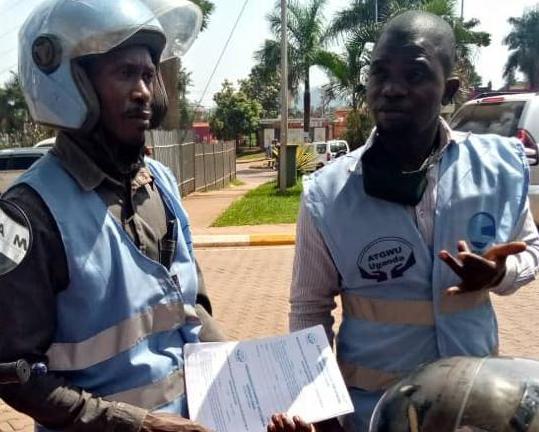A trade union guide to worker-led formalisation
• provide regulated access to public space – essential for informal workers in transport terminals and service workers (mechanics, vendors etc) Although ILO recommendations have no legal power, this framework provides powerful political and ethical arguments in negotiations with national and international authorities. Some national governments have started to address formalisation – for example, the Senegalese government has established a new position of minister of the transformation of the informal sector, which potentially provides a space for unions to negotiate. Governments borrowing from IFIs like the World Bank to finance their urban transport reform projects are legally bound to engage with stakeholders affected by projects, as a result of the binding environmental and social safeguards adopted by many IFIs.17 The World Bank 2018 Environmental and Social Framework requires borrowers (governments) to actively engage with those affected by the project in both the design and implementation phase. The framework also contains provisions that require borrowers to address the economic displacement – the impact on livelihoods – brought about by project implementation. While IFI safeguarding systems are lacking in many respects, especially concerning gender protection, they may offer unions another strategic argument to shape urban transport reform.
WHAT IS OUR AGENDA? REALISING THE RIGHT TO COLLECTIVE BARGAINING First and foremost, without the power of strong union organisation it will be impossible to successfully reform and formalise urban passenger transport to the benefit of transport workers and passengers. This includes the inclusion of informal workers within the trade union movement as members and leaders, and changes to our constitutions, organising methods, services and internal organisation to become relevant and effective in the informal transport industry. ITF affiliates are proving that this is possible and becoming more powerful as a result18. With this collective power, we can begin to realise our rights to collective bargaining. This firstly requires recognition that collective bargaining is not just between employers and employees, but between workers and any organisation or institution that has power and influence over our livelihoods and working conditions, including governments and transport authorities. It includes both those who are informally employed and self-employed. It includes all those who are part of the transport industry, not just drivers and riders. It includes both women and men. Collective bargaining requires the identification of the bargaining counterpart (the people we need to negotiate with to effect change), their recognition that we are the legitimate democratic representatives of the workforce, and an agreement on how, where and when collective bargaining can take place – a negotiating platform. It is essential that unions are recognised to have negotiation rights as key stakeholders, not just vague references to consultation or information-sharing. It also requires that our members be fully informed and involved in democratically determining demands and reaching
ATGWU organiser recruiting boda boda drivers
17 See generally ITUC. 2019, The labour standards of the
18 See, for example, ITF 2017. The Power of Informal
multilateral development banks: A trade union guide.
Transport Workers
21







